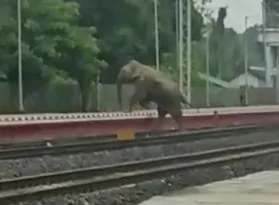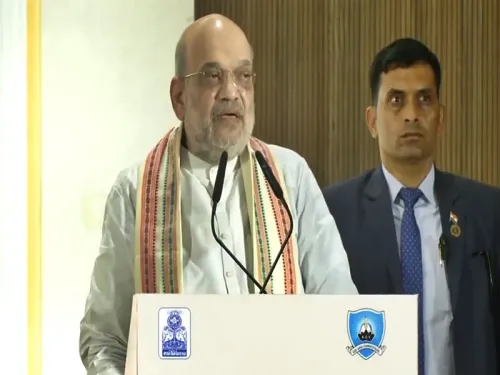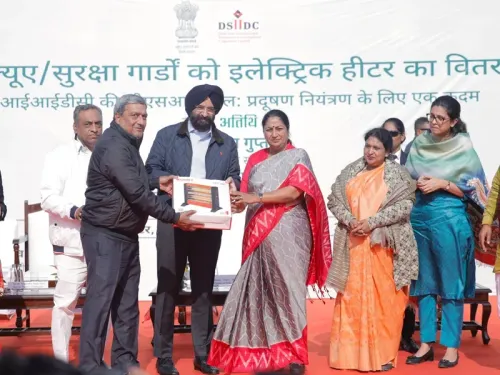Wild Elephant Fatally Injured by High-Speed Train in Tripura

Agartala, Dec 31 (NationPress) A 35-year-old wild elephant, critically injured by a high-speed train in Tripura’s Khowai district, passed away late Monday night, as reported by officials on Tuesday.
Despite the best efforts from the veterinary hospital team, the animal could not be saved. A senior forest official confirmed, “The jumbo succumbed to its injuries late Monday night, despite intensive medical care.”
On Tuesday, three veterinary doctors, along with forest and wildlife officials, performed a postmortem before the elephant was laid to rest.
The Tripura Forest Department has filed an FIR with the Government Railway Police in Teliamura and lodged a formal complaint with the Northeast Frontier Railway’s Divisional Manager in Lumding. The department accused the railway authorities of negligence, stating that the train was traveling at an estimated speed of 50 km/h, significantly exceeding the 20 km/h limit established for elephant corridors in the region.
The incident took place on Saturday night when a local train, en route from Agartala to Dharmanagar, struck the elephant in the Shalbagan area under the Teliamura Forest Division. Both of the elephant's hind legs were fractured, rendering it immobile. Forest officials arranged for medical care starting Sunday, but the injuries proved fatal.
This tragedy is not an isolated case. A similar incident occurred in February when another elephant was killed by a train in the same designated corridor. Forest officials emphasized that the tragedy could have been avoided had the train adhered to the prescribed speed limit.
Wildlife experts voiced their concern over these recurring incidents. Elephants are classified as Schedule-I animals under the Wildlife (Protection) Amendment Act 2022, recognizing them as endangered species deserving the highest level of protection. As India’s National Heritage Animal, they command both respect and conservation priority.
Experts are advocating for enhanced safety measures in designated elephant corridors, which include mapping critical routes and collaborating with stakeholders such as the Railways, the National Highways Authority of India (NHAI), district administrations, and state public works departments.
“These measures are essential to prevent such tragedies and ensure the coexistence of infrastructure and wildlife,” one expert emphasized.










